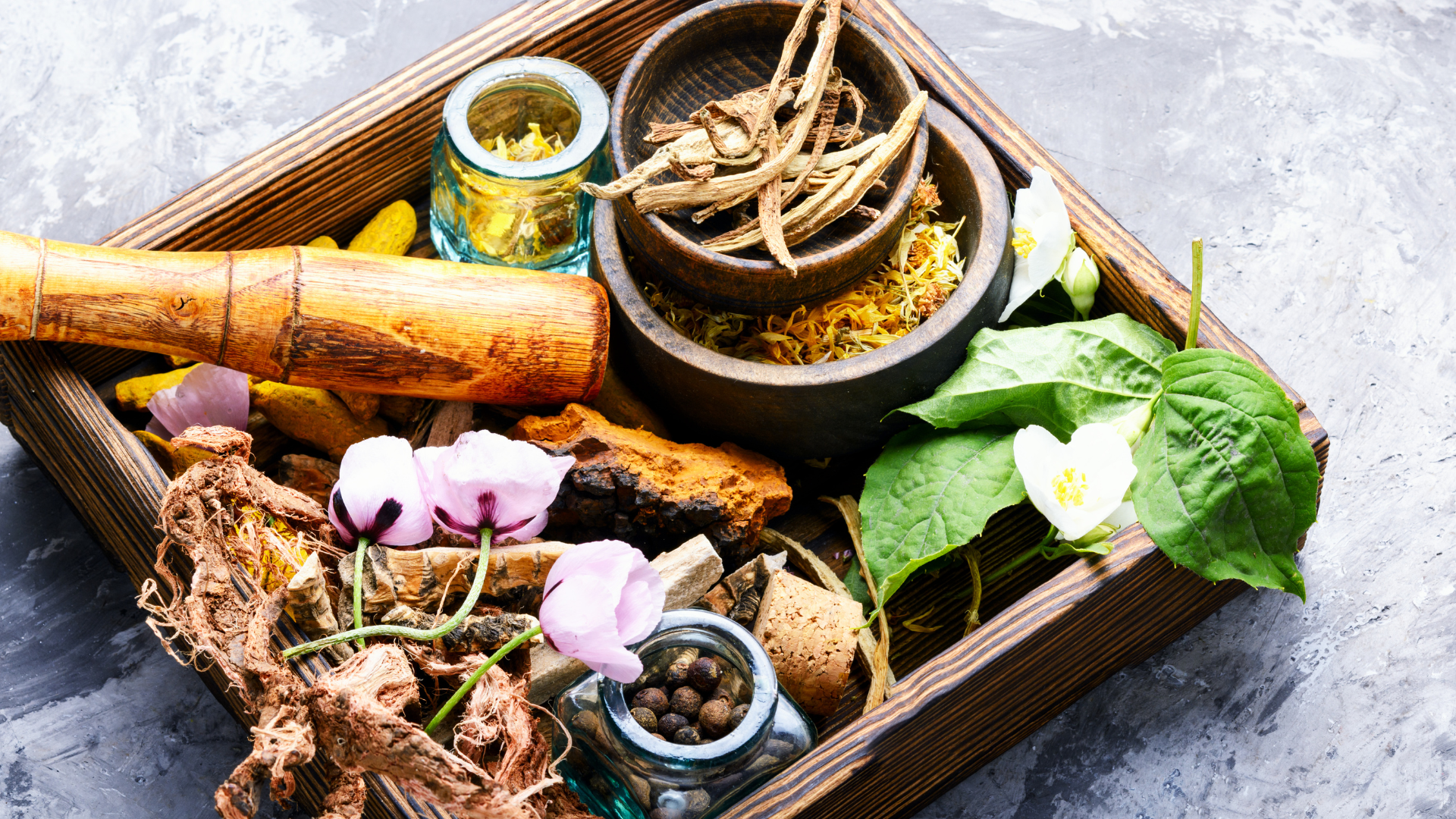I was honored to spend an evening together last week with the American Herbalist Guild community to share my deep dive into the history of medicine and explore the shared roots between pharmacy and herbalism.
As I expressed in the preface of the webinar, history is not an “exact science” and we rely on conclusions based on bits of (sometimes conflicting) reports and shreds of evidence that we piece together. It can also be “one-sided” as it reflects the political and social agenda of the time period we are studying, and it can be difficult to relay it objectively.
Literally the word “history” relays the idea of it being someone’s story (his-story) – which doesn’t mean it’s applicable to everyone. The Greek etiology of the word comes from “historia” which meant inquiry, or seeking knowledge.
So both in history and science, we study and educate ourselves in the pursuit of finding out the true, objective story – but always take it with a grain of salt and keep an open mind about new evidence that can completely turn our accepted theories” (ie “facts”) upside down!
Confession: for me, history had always been kind of boring… until I realized that knowing our past well can really affect our trajectory for the future. We don’t have to reinvent the wheel and do random trial and error – for both science and history.
We can learn from the past in order to create a better future. Otherwise, we are doomed to repeat mistakes which incurs a lot of cost in time, energy, and resources/money. What is the value of human labor and life if we don’t honor the contributions of our predecessors – by remembering and doing better?
So ultimately, what were the takeaways that I’ve gathered from doing the research for the presentation, and also see mirrored in my own life and health journey? I will break it down to these 5 key points:
- We live in an “AND” world. Even though many things in our physical world seem like a dichotomy at first glance, they are not mutually exclusive. Rather, everything is related and both sides are equally necessary to make up the whole – like yin and yang. The existence of one necessitates an opposing force to define it.
- Science and history are two approaches that we use to learn about how we got here and how the world “works”….they are similar inquiries from opposite ends of the question, since one is more calculative and the other more humanitarian…and neither are foolproof! We only see 0.001% of the world, the physical reality, and we can draw so many conclusions from our 5 senses and the various tools we have created to study both science and history. Yet there are still mysteries we can’t explain, and theories that are constantly overturned when new evidence emerges. The scientific method is only as good as the applications which we are studying, and having an open mind to modify our theories.
- Humans have coevolved with their natural surroundings and other living beings and have learned to consciously manipulate matter to their benefit. The first communities relied on instincts and reciprocity with nature to survive and form mutually beneficial relationships. As consciousness grew, the desire for more advanced healing abilities resulted in studying the natural world for clues, and explaining illnesses as a spiritual transgression. Due to politics, laws and religion, the humanities and the sciences grew apart and the Western world has adopted a highly rational, mechanical and reductionist view of health and therefore medicine.
- We can trace the roots of our modern medical approach to plants, as both food and medicine, and the precursors of the majority of early drugs. However, the tide shifted to highly specialized experts in narrow fields, with the adoption of the Germ Theory and the Flexner report. The early herbalist turned into the alchemist and eventually into the pharmacist, with the industrial revolution and the rise of pharmaceuticals (synthetic single molecule drugs from petroleum). Their role in the medical field and in the community has changed in the last century due to regulations and the dismissal of the millenia of earlier traditions, in many ways limiting the way we can support the foundation of health.
- Health is truly about addressing physical, mental/emotional and spiritual facets of our human body and experience. We can attend to our health needs in an evidence-based manner AND a psychosomatic approach. We are not just a mechanical body of flesh and bones, we are also ethereal and conscious beings. We can’t experience healing in one minute part/function of the body without addressing the whole system. We can be excited about the emerging technologies, biological and chemical “miracle” cures AND create a solid foundation of health and resilience through lifestyle, diet and herbs. It is not just the “germ”/pathogen/cancer we have to address, but also the terrain. It is not just our terrain that we need to assess, but look at the microcosm of our microbiome and the macrocosm of our planetary health.
With those sentiments, I truly hope that everyone who attended enjoyed the presentation! I know I enjoyed the process of researching it and presenting it.
For anyone who’d like the replay, you can find it on the AHG website under “Educational Resources → Webinars for Herbalists → Archives” and if you’d like a copy of the slides please reach out to me directly.
Thanks again for your attention and support, and let me know what questions, feedback or suggestions you have for this topic or for future topics you’d like to hear from me on.
If you watched the webinar, let me know your biggest takeaways in the comments!


